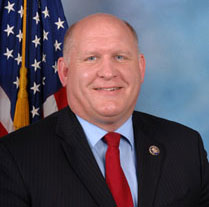UNIVERSITY PARK – A group of Penn State students led by assistant professor of biology Charles Anderson is exploring ways to make plants hardier, boosting world food supplies in the process.
The project, called Fast Farming: Feeding a Hot, Dry World, uses a genetic screening technique called activation tagging to identify genes that improve a plant’s ability to tolerate environmental stresses. These stresses, such as drought and extreme heat, are worsening as a result of climate change and already are threatening the ability of farmers around the world to grow enough food.
The team has launched a crowdfunding campaign to support the project. It’s the first to launch under a new partnership between Penn State and USEED, a crowdfunding platform that partners with universities to support research projects.
The team is aiming to sustain an intensive research program for a full year, allowing them to test many different environmental conditions with an expanded set of plant varieties and giving them the chance to identify many more new stress-tolerance genes.
The team uses Brachypodium distachyon, a small, fast-growing grass species related to wheat and barley. They grow many thousands of Brachypodium plants in greenhouses and growth chambers to mimic soil and weather conditions faced by farmers around the world. They can harvest valuable data from one generation of plants in as little as one month. The research team also hopes to make direct contact with farmers and plant breeders around the world, learning about the specific challenges they face as a result of climate change and helping them to efficiently identify the best hardy, high-yielding crop varieties that will grow well under fluctuating climate conditions.
The students involved in the project include Nikki Kapp, a master’s student in plant biology; and Penn State undergraduate students Liam Farrell, Jaime Jarrin and Samantha Roa.
Anderson’s group studies the dynamics of plant cell walls, with a focus on improving our ability to sustainably produce food, materials and energy from plants. Before joining the Penn State Biology Department in 2011, he completed postdoctoral research at the Energy Biosciences Institute at the University of California Berkeley, which focuses on the scientific, technical and societal aspects of developing sustainable sources of bioenergy. He is currently a principal investigator in the Center for Lignocellulose Structure and Formation, an Energy Frontiers Research Center funded by the U.S. Department of Energy.
For more information on Anderson’s research, visit his laboratory Web site.



